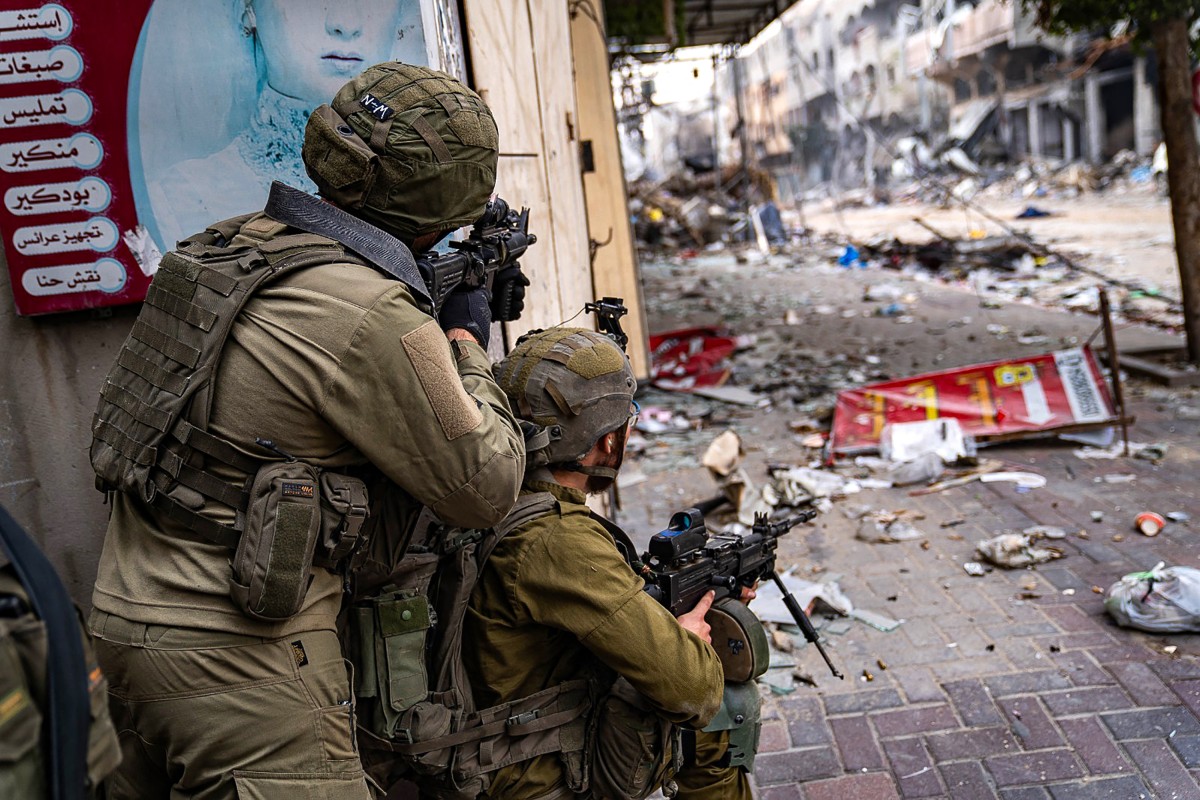Dubai, UAE–Israeli strikes in Gaza killed more than 200 people in 24 hours, Hamas-controlled authorities said Saturday, as the United States again pressed its ally to do more to protect civilians.
Despite growing calls for restraint and for more aid to reach war-stricken Palestinians, Israel showed little sign of modulating its 11-week-old “Operation Swords of Iron” — which aims to rout Hamas.
Fighting is now centred on Gaza City and the southern city of Khan Yunis, both considered strongholds of the Palestinian militant group that carried out bloody October 7 raids into Israel.
After reports of heavy Israeli shelling, grey and black smoke rose over the north of the coastal territory and in Khan Yunis.
The refugee camp-turned-city is the birthplace of Yahya Sinwar, Hamas’ leader in Gaza and the man Israel holds most responsible for the October attacks.
The Israeli Army chief of staff, Herzi Halevi, visited troops on the ground in Khan Yunis, telling them that the operation had been “very impressive, truly very impressive, both the attack here and carrying out the operation in a secure manner”.
Outside a morgue at the city’s Nasser Hospital, grieving relatives prayed, wept and stared vacantly as they tried to process incalculable loss.
Hamas authorities said the death toll from this war has now surged beyond 20,000.
“This is a genocide,” said resident Rafat Al Aydi.
Israel denies directly targeting civilians and says the war against Hamas is vital to ensure the October raids on farms, villages and kibbutzim that killed an estimated 1,140 people can never be repeated.
‘We want a ceasefire’
In Washington, President Joe Biden said he had another “long talk” with Israel’s hawkish prime minister, Benjamin Netanyahu.
The White House said the discussion focused on the “objectives and phasing” of Israel’s military operation, as well as “the critical need to protect the civilian population including those supporting the humanitarian aid operations”.
Israeli officials gave a terse readout of the call, saying “the Prime Minister made it clear that Israel would continue the war until all of its goals have been achieved”.
A total of 144 Israeli troops have been killed since the ground offensive began almost a month ago.
Netanyahu, Israel’s longest-serving prime minister, has had testy relations with a string of US presidents. But disagreements over how the Gaza war is being prosecuted, when it will end, and what happens the day after, have strained ties ever further.
On Friday, the United States allowed the passage of a UN Security Council resolution that effectively called on Israel to allow “immediate, safe and unhindered” deliveries of life-saving aid to Gaza “at scale”.
World powers had wrangled for days over the wording, and at Washington’s insistence toned down some provisions — including removing a call for a ceasefire.
UN Secretary-General Antonio Guterres has accused Israel of “creating massive obstacles” for aid deliveries.
For Palestinians in Gaza’s southern city of Rafah, the prospect of aid alone was not enough.
“We don’t want food, we want a ceasefire,” said Mahmud al-Shaer.
Ahmad al-Burawi, who was displaced from Beit Lahia further north, added: “We just want to return to our lands, that’s all. We want a solution” to end the war. “People are dying,” he said.
The war has displaced about 80 percent of Gaza’s 2.4 million population, according to UN estimates.
‘Lost contact’
Israelis, including friends and relatives of the 129 captives still believed held in Gaza, demonstrated again on Saturday in Tel Aviv.
Hamas’s armed wing said it “lost contact” with militants tasked with guarding five of the hostages, including three elderly men who appeared in a hostage video the group released this week.
“We believe that those hostages have been killed” in Israeli strikes, said spokesman Abu Obeida without providing evidence.
Talks aimed at resuscitating a truce and prisoner swap appeared to be stalled.
An earlier truce allowed 80 Israeli hostages to be released in exchange for 240 Palestinian prisoners, but ended after one week.
Drone strike off India
Far from Gaza, a new attack on shipping Saturday showed the war is already spilling over into the broader region.
Maritime agencies said a drone strike damaged a chemical tanker in waters off Veraval, India.
There was no claim of responsibility, but the Pentagon said it was a “one-way attack drone fired from Iran”.
Yemen’s Iran-backed Huthi rebels have repeatedly fired drones and missiles at ships in the Red Sea, saying they are targeting Israeli-linked vessels in solidarity with Gaza.
Iranian deputy foreign minister Ali Bagheri on Saturday said the Huthis act on their “own decisions and capabilities”.
There also have been cross-border skirmishes between Israeli forces and Lebanon’s powerful Hezbollah movement which, like Hamas, is backed by Iran.

